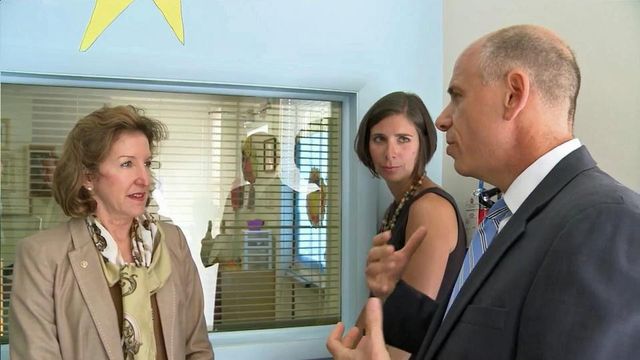Hagan tours UNC hearing center
Sen. Kay Hagan saw first-hand Friday how federal health investments paid off from one North Carolina family.
Posted — UpdatedHagan got a tour of two programs that help children hear – the Carolyn J. Brown Center for the Acquisition of Spoken language Through Listening Enrichment (CASTLE) and the MD Carolina Children's Communicative Disorders Program (CCCDP), both at the University of North Carolina School of Medicine.
UNC'S CCCDP & CASTLE center serves as a national model for early hearing loss intervention and services for infants and children. It was there that Grayson Clamp, 3, got the auditory brain stem implant that allowed him to hear his father's voice for the first time.
Hagan met Grayson and his parents during her visit.
"I think the investment early on pays dividends not only for the child and the family but for the community and the state and the nation," Hagan said. She wanted to demonstrate the value of taxpayer investment in the program, which was among those cut by the federal sequester last spring.
Grayson was born without a nerve connecting his inner ear to his brain, so not even cochlear implants could help him hear. He was the first in the country to receive an auditory brain stem implant as part of an FDA trial.
Soon after activating his implant, Grayson began his speech development therapy, and father Len Clamp said he's already hearing the difference.
"He's really started to vocalize actual consonants and some vowel sounds," he said.
The program also offers two-way computer therapy sessions for families anywhere in the state. Early assistance helps many children overcome speech delays by the time they begin school.
DR. Craig Buchman, an ear, nose and throat surgeon at UNC, said the goal is to get young people with hearing loss on par with their peers in time for kindergarten.
degree of hearing loss.
• Credits
Copyright 2024 by Capitol Broadcasting Company. All rights reserved. This material may not be published, broadcast, rewritten or redistributed.




